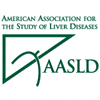 Americans receiving care through the Veterans Health Administration (VA) are infrequently tested for hepatitis B virus (HBV), and only a fraction of those who test positive are treated or receive liver cancer screening, HIVandHepatitis.com reports. Results of a retrospective cohort analysis of data covering 1999 through 2013 from the Corporate Data Warehouse were presented at the Annual Meeting of the American Association for the Study of Liver Diseases (AASLD) in Boston.
Americans receiving care through the Veterans Health Administration (VA) are infrequently tested for hepatitis B virus (HBV), and only a fraction of those who test positive are treated or receive liver cancer screening, HIVandHepatitis.com reports. Results of a retrospective cohort analysis of data covering 1999 through 2013 from the Corporate Data Warehouse were presented at the Annual Meeting of the American Association for the Study of Liver Diseases (AASLD) in Boston.
Out of 16.7 million people who made at least two visits to a VA clinic, 2.5 million (15 percent) were tested for hep B surface antigen (HBsAg). A total of 21,828 (0.9 percent) of them tested positive. Of that group, 17 percent were coinfected with hepatitis C virus (HCV) and 4.7 percent also had HIV. Almost 40 percent had a significant history of abusing alcohol and 8.3 percent had been diagnosed with cirrhosis.
Just 6,744 (31 percent) of the vets with hep B were referred to specialty care and only a quarter were given antiviral treatment. Only the other hand, 38 percent of the HBV-positive vets with an elevated alanine aminotransferase (ALT) level received hep B treatment. Among those who were in specialty care, 44 percent were on treatment, a figure that rose to 49 percent if they had elevated ALT levels.
Thirteen percent of all the hep B-positive vets were screened for hepatocellular carcinoma (HCC, the most common form of liver cancer), compared with 18 percent of those in specialty care.
To read the HIVandHepatitis story, click here.
Advertisement
Advertisement
Advertisement






Comments
Comments